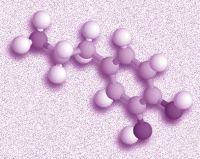Note: This is Part One of what will be at least a two-part discussion on this topic.
As a person who was diagnosed early in life with attention-deficit hyperactivity disorder (AD/HD), and as a scholar of psychoactive drugs, I have had cause to dwell on the role of dopamine in the brain for a while now. Clearly dopamine is a reward stimulus, intimately tied to pleasure, sex, drug addiction, and risky behavior. Volumes have been written on this subject, but that is not what I have been thinking about lately.
What I have been thinking about lately is the role of dopamine in movement and fine motor control. An interruption of dopamine uptake can clearly cause shaking, muscle rigidity, and the lack of coordination seen most commonly in Parkinson's like disorders and as the result of dopamine-blocking anti-psychotics, like Thorazine. But what about the reverse of this disorder?
If we think of the full range of human mobility in terms of a scale, and we put Parkinsonian tremors on one extreme and perfect coordination on the other extreme, suddenly an ethical issue emerges. Wouldn't you want to try get as close to the "perfect" end of this scale as possible, no matter what your particular genetic profile says about how limber or coordinated you should actually be? And if you wanted to become more limber and coordinated, could you really do it by using dopamine-stimulating drugs? You bet.
Anyone who has done stimulants or amphetamines will tell you that a little boost of dopamine gives you increased focus and coordination, and a big boost makes you feel like attempting superhuman feats. Dopamine doesn't just affect your brain, it affects muscle tone, reflexes, and nervous response throughout the entire body. This is why stimulants, even marijuana, are considered to be performance-enhancing drugs in professional sports.
The biggest problem with dopamine-stimulating drugs and activities is that they are all addictive by definition. In the short term they make you sharper and quicker, but extended use makes you twitchy and hyper-responsive, moving beyond the range of perfect focus and coordination and pushing you into the realm of impulsive, paranoid, and potentially psychotic.
To me it seems that the "dopamine problem" is the central problem of the entire "War on Drugs" hoopla. We are all genetically wired to seek out dopamine stimulating activities, and yet each and every one of these activities gets social flak. Let’s look at the list: alcohol, drugs, sex, gambling, risk taking, driving fast, fighting, smashing things... Dopamine literally translates into pleasure, power, reward, and physical prowess. Who wouldn't want more of that?
So we have a culture that represses these activities, addictive cults surrounding these activities, and a pharmaceutical priesthood that says who gets to have their dopamine stimulated and for what purposes. And because I am one of those people who is "clinically diagnosed" with "Adult ADD", for me it is "okay" to be taking drugs that stimulate my dopamine supply. In fact it is
doctor's orders.
Over the course of my lifetime I have experimented with a variety of legal and illegal drugs trying to find something that works well for me. And in the process, I have discovered quite a bit about the unique way in which dopamine affects mood and behavior. Dopamine is not a thinking drug, it does not affect the psyche in an analytical way, like serotonin, but has a much more somatic, visceral method of elevating mood and invigorating the body regardless of pre-existing anxieties or concerns. And as someone who constantly struggles between being DA- (distracted, tense, dysfunctional) and DA+ (focused, loose, manic), it is an issue that I confront on a daily basis.
This is the end of Part One. Look for more on the Dopamine Problem next week at DoseNation.





















